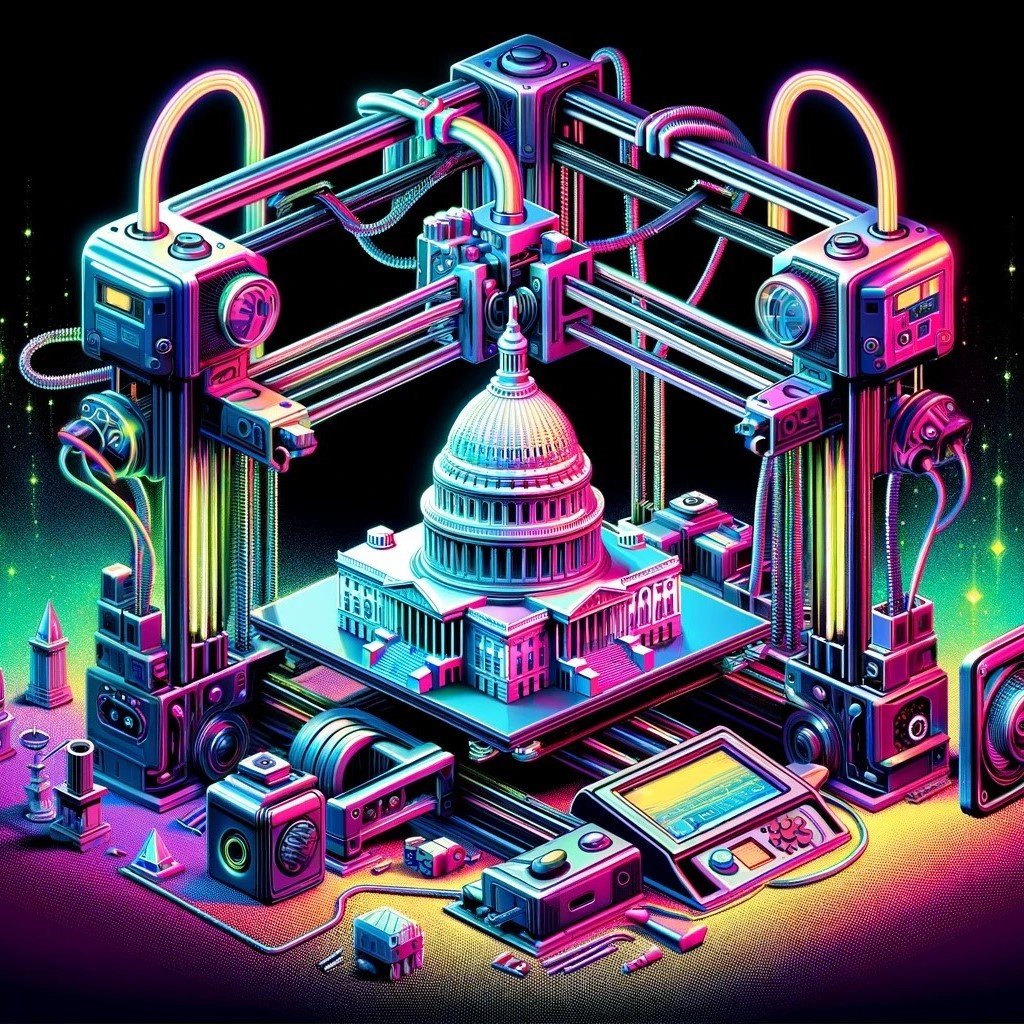
The Capitol complex is more accessible with ADA transit zones.
Providing proper ADA pick-up and drop-off zones helps ensure the Capitol campus is accessible to all.

Future-Proofing Congress: Imagining the Design of an Expanded House
Imagine never getting lost again in Rayburn, a bridge to Ford, and an abundance of co-working space; will proxy voting get the nod in the 119th?

Future-Proofing Congress: Wrapping up the 118th and Resources for the 119th
A new explainer podcast for the upcoming 119th Congress, resources for new hires and transitions, Congressional AI updates, and more!

Support for Staffers from Inside and Out
Increased media attention on the impact of Loper Bright is making the case for investing in Congress, another ModCom rec nears the finish line, protect your cybersecurity, and more!

It’s Hackathon Day!
Post-Chevron court cases are already challenging regs, House Rules gets the Member Day treatment, phone safety tips, and more!

Future-Proofing Congress
Our new Future-Proofing Congress newsletter has all the latest tech tools, professional development opportunities, and other improvements happening inside the halls of Congress.

The House is a global leader in its agile, institutional approach to the emergence of GenAI.
The US House of Representatives has emerged as one of the world’s leading legislative bodies in responsibly responding and adapting to the emergence of GenAI.

House Digital Service is upgrading the House’s digital infrastructure, enabling a more accessible, transparent, and user-friendly Congress.
An internal innovation hub, the House Digital Service (HDS) is able to directly engage with Members and staff to create specific technology solutions to high-impact problems.

The House is creating more modern tools to boost efficiency, effectiveness, and oversight.
When it comes to performing its oversight functions and processing thousands of documents to fully understand complicated policies and their implications, Congress has been woefully behind in utilizing tools to receive, organize, review and store information.

The House has invested in the capability for Member offices to adopt telework agreements and flexible work arrangements, boosting recruitment and retention.
Congressional offices have the autonomy to provide flexible work arrangement policies, helping align more with the private sector.

The House has adopted private sector best practices related to Member lodging costs, combating limitations that a seat in Congress could only be maintained by the independently wealthy.
The House has updated its Member lodging policy to help alleviate personal financial burdens after being elected to Congress.

Congressional staff can now partake in professional certification programs.
The House has expanded its professional development programs to provide Congressional staff the opportunity to expand expertise and management skills.

Staff and Member pay are no longer linked, opening the pathway to improve staff pay.
The House removed the staff pay cap to help address the workforce retention challenge.

Staff now have dedicated coworking spaces for collaboration.
Congressional staff now have spaces, located in the Cannon House Office building, specifically for collaboration.

The House has centralized a House Intern Resource Office (HIRO), providing structured professional development and mentorship opportunities for interns.
For the first time ever, the House has a central institutional office to help support Congressional interns and intern managers.

The House has greater pay transparency.
The House publishes salary ranges for Congressional staff positions to allow staff to better negotiate salaries.

Congress increased Member resources to attract and retain America’s best and brightest.
The House has raised funding for Congressional staff and intern salaries to better compete with the private sector and other branches of government.

Congress is beginning to adopt best practices for onboarding and workforce training.
The House has begun to standardize onboarding training to ensure Congressional staff are ready to hit the ground running.

The House now has a human resources department, professionalizing and standardizing workforce support and resources.
The House has enhanced its internal operations to provide better payroll and benefit information and improved professional development training for its staff.

Members’ district offices now have minimum standards of technology to support staff’s service to constituents.
Districts offices are now equipped with better support services, including wi-fi enabled spaces.
